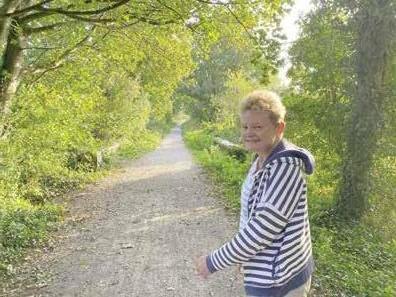
4 minute read
Specialist care
Dementia
There can be many causes of memory loss, such as stress and some health conditions. There is lots of information and support available.
The word ‘dementia’ describes a range of over 100 progressive brain diseases. The symptoms can include a decline in memory, reasoning and communication skills, mood changes and a gradual loss of the skills needed to carry out daily activities.
If you are worried about your memory, you should begin by discussing your concerns with your GP. Your GP can talk you through what services are available in Somerset.
If you are diagnosed, the Dementia Somerset website: www.dementiasomerset.org.uk provides useful information and details of various services, as well as support for carers. Remember, it is possible to live well with dementia.
Live Safe and Well
Avery Healthcare is a leading and award winning national care provider offering residential, respite and dementia care.

• Nutritionally balanced seasonal menus • Spacious, beautifully decorated bedrooms • A warm and friendly environment to make new friends • Stimulating schedule of daily activities and entertainment • Safe visits for family and friends • Highly trained staff teams For the best in Somerset, look no further.
Acer House
Weston-super-Mare 01934 218065
Poets Mews
Clevedon 01275 264446
averyhealthcare.co.uk
If you have a sight or hearing loss, or know someone who has, we have helpful information on a range of services.
Visit our website: www.somerset.gov.uk/social-
care-and-health/adult-social-care-information-
sheets and refer to sections ‘F – Information for people with sight loss’ and ‘G – Information for We also have specialist sensory loss workers who can provide you with information and advice on services and equipment. Please phone us on: 0300 123 2224, email: adults@somerset.gov.uk or for deaf and hard of hearing callers, use text relay by prefixing our phone number with: 18001.
Learning disabilities
We have social care workers who can provide you with a wide range of advice and information about specialist support that is available for people with a learning disability in Somerset. This could be a range of things, such as residential care, supported living, adult placements, short residential breaks, domiciliary care, community access and work preparation services.
Resource for those supporting disabled children
My Family, Our Needs is an online resource providing impartial information for parents, carers and practitioners supporting children from birth to 25 years with additional needs. As well as guidance, policy and signposting, there is a lifestyle section for parents covering topics such as health and wellbeing, work, family and relationships. Visit:
www.myfamilyourneeds.co.uk

Search for care in your area
www.carechoices.co.uk
With so many providers to choose from, where do you start?
• Find care providers quickly and easily • Search by location and care need • Information on care quality • Links to inspection reports • Additional information, photos and web links • Brochure requests
Supporting Adults With Learning Disabilities To Live Life To The Full
Home 1 Home 2 Home 3
Fees per week Quality rating* £ £ £
We suggest that you take paper with you when visiting care homes so that you can make notes. Please use this checklist in conjunction with the care homes checklist on page 41. You can download and print this checklist at: www.carechoices.co.uk/checklists
Design
Are there clear signs throughout the home?
Has the home been designed or adapted for people with dementia? Are the home and grounds secure? Are there prompts outside the residents’ rooms to help people identify their own?
Is the décor familiar to your loved one?
Choices
Do residents get a choice in terms of what they wear each day? Are residents encouraged to be independent? Can residents decide what to do each day? Can residents have a say in the décor of their room? Health
Can residents get help with eating and drinking? How often does the home review residents’ medication?
Does the home offer help if a resident needs assistance taking medication?
Do GPs visit the home regularly?
Staff
Are staff trained to identify when a resident might be unwell? Are staff trained to spot when someone needs to go to the toilet? Do the staff have any dementia-specific training/experience? Will your loved one have a member of staff specifically responsible for their care?
Activities
Are residents able to join in with household tasks like folding washing? Are there activities on each day? Can residents walk around outside on their own?
Are residents sitting in front of the TV or are they active and engaged? Are there rummage boxes around? Approach to care
Does the home follow a specific approach to dementia therapy, for example, validation therapy? Will the home keep you informed about changes to your loved one’s care? Does the home have a specific approach to end of life care? Does the home keep up to date with best practice in dementia care?










